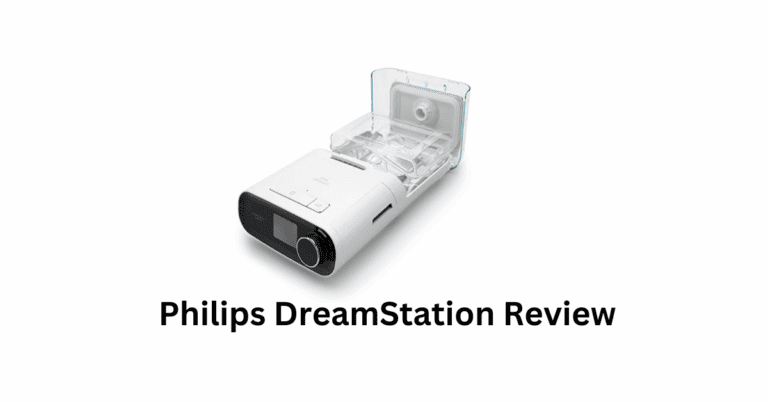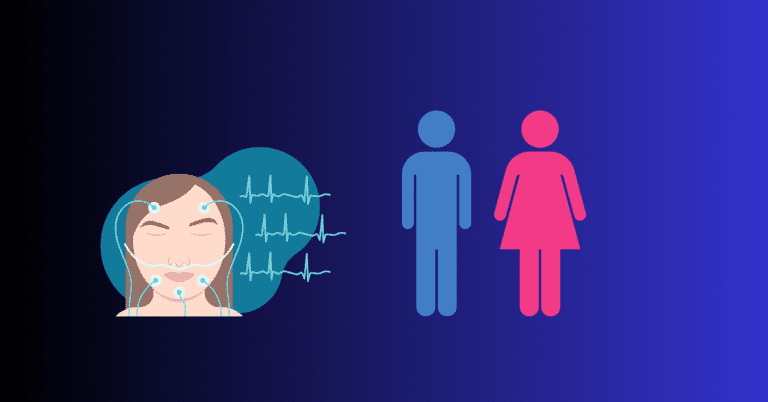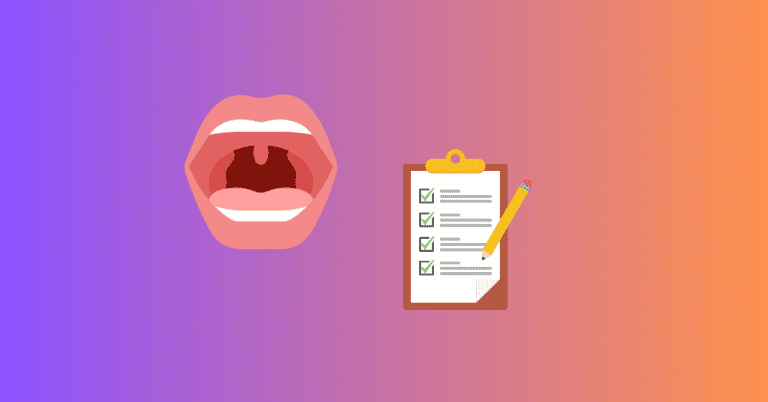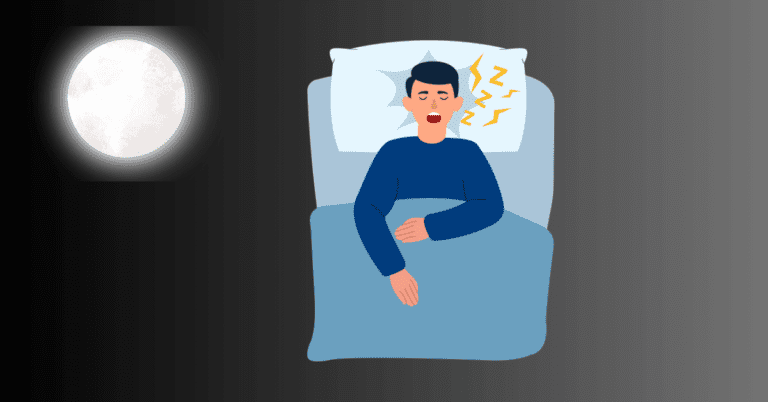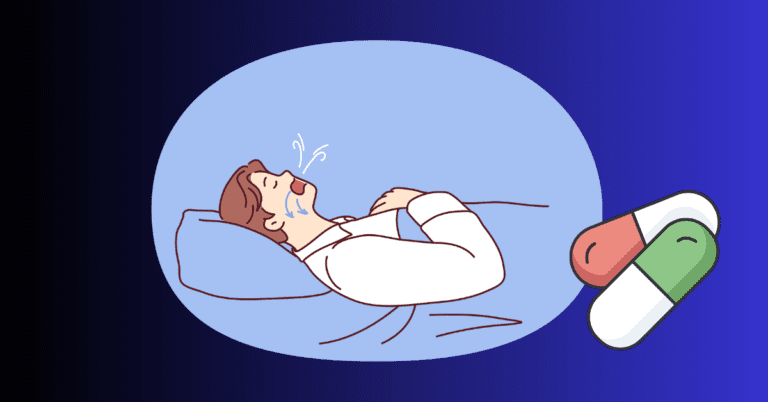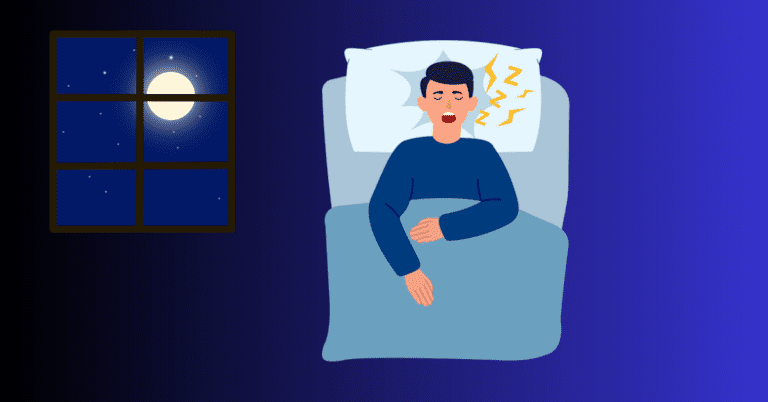Sleep Apnea and Stroke Risk: What You Need to Know
Jeremy Smith is a long-term CPAP user and sleep apnea advocate. After being diagnosed with severe obstructive sleep apnea, he created ByJeremySmith.com to help others navigate CPAP therapy through personal stories, gear reviews, and practical advice.
In this article, we’ll explore the relationship between sleep apnea and stroke risk, how sleep apnea affects the cardiovascular system, and what you can do to reduce your chances of stroke.
I have severe sleep apnea, and the risk of having a stroke was something that came up when I consulted my doctor.

Did you know that untreated sleep apnea can increase the risk of stroke?
This connection is significant, and understanding it can be crucial for anyone looking to safeguard their long-term health.
Whether you’re newly diagnosed or just looking to learn more, this guide will help clarify why treating sleep apnea is essential for overall wellness.
What is Sleep Apnea?
Sleep apnea is a sleep disorder where breathing stops and starts repeatedly during sleep.
These interruptions, known as “apneas,” are caused by obstructions in the airway or by the brain’s failure to signal the muscles that control breathing. There are three main types of sleep apnea:
- Obstructive Sleep Apnea (OSA) – The most common type, caused by a blockage in the upper airway.
- Central Sleep Apnea (CSA) – Occurs when the brain fails to send proper signals to control breathing.
- Complex Sleep Apnea Syndrome – A combination of both obstructive and central sleep apnea.
Each type of sleep apnea poses risks, but untreated OSA, in particular, is strongly linked to increased stroke risk.
Understanding the Link Between Sleep Apnea and Stroke
People with sleep apnea are more likely to experience strokes due to the disorder’s impact on blood pressure, oxygen levels, and overall cardiovascular health.
Here’s how:
- Oxygen Deprivation: During an apnea event, the airway becomes blocked, stopping oxygen flow to the lungs. When this happens, blood oxygen levels drop, putting extra stress on the heart and blood vessels. These repeated drops can damage blood vessels over time, making stroke more likely.
- Increased Blood Pressure: Apneas trigger a “fight or flight” response, causing the body to release stress hormones like adrenaline. These hormones increase heart rate and blood pressure, both of which are major risk factors for stroke.
- Inflammation: Studies show that sleep apnea increases inflammation in the body, contributing to plaque buildup in arteries. This plaque can lead to blockages, and if one of these blockages occurs in the brain, it can cause a stroke.
How Common is Stroke in Sleep Apnea Patients?
Research suggests that 65% of people who’ve had a stroke also suffer from sleep apnea.
That means sleep apnea is not only a significant risk factor for stroke but also commonly co-occurs with it.
Additionally, those with severe sleep apnea (more than 30 apneas per hour) have up to a 4-fold increased risk of stroke compared to those without sleep apnea.
It’s worth noting that this risk applies to both ischemic strokes (caused by blood clots) and hemorrhagic strokes (caused by bleeding in the brain).

Symptoms of Sleep Apnea and Stroke Risk
While sleep apnea and stroke may seem unrelated, they share several overlapping symptoms, making it harder to distinguish one from the other. Here are common sleep apnea symptoms that could be red flags for increased stroke risk:
- Loud snoring – Frequent, loud snoring is a hallmark symptom of obstructive sleep apnea.
- Gasping or choking during sleep – A sign of interrupted breathing episodes.
- Daytime fatigue – Waking up tired or feeling sleepy during the day, despite a full night’s rest.
- Morning headaches – Caused by oxygen deprivation during sleep.
- Difficulty concentrating – Reduced oxygen and poor sleep quality can lead to memory issues and poor concentration.
Since these symptoms can affect your cardiovascular system, including your risk of stroke, it’s crucial to take them seriously. Regular sleep apnea testing can reveal whether you are at risk and guide you in taking preventive steps.
Sleep Apnea Diagnosis and Stroke Prevention
If you suspect you have sleep apnea, the first step is getting a diagnosis. This is usually done through a sleep study, either in a sleep lab or as a home sleep test. During the study, your sleep patterns, oxygen levels, heart rate, and other variables are monitored to determine the severity of your sleep apnea.
The Importance of Treating Sleep Apnea to Lower Stroke Risk
Once diagnosed, treating sleep apnea can dramatically reduce stroke risk and improve your quality of life. Treatment options typically include:
- CPAP Therapy (Continuous Positive Airway Pressure): The most common and effective treatment for OSA, CPAP therapy involves using a machine that delivers a steady stream of air through a mask, keeping your airway open during sleep. Research shows that using a CPAP machine can reduce the risk of stroke by improving oxygen flow and stabilizing blood pressure.
- Lifestyle Changes: Weight loss, quitting smoking, and reducing alcohol intake can significantly improve sleep apnea symptoms. These lifestyle modifications also support cardiovascular health, helping to lower stroke risk further.
- Surgical Options: In severe cases where CPAP therapy isn’t effective, surgery to remove or reduce the tissue blocking the airway might be an option. Procedures such as UPPP (uvulopalatopharyngoplasty) or Inspire, an implant device that stimulates the muscles controlling the airway, can sometimes help manage OSA.
- Oral Appliances: For mild cases, an oral appliance that repositions the jaw and tongue to keep the airway open might be recommended as an alternative to CPAP.
How CPAP Therapy Reduces Stroke Risk
Using a CPAP machine has been shown to help reduce the risk of both first-time and recurrent strokes. CPAP therapy works by:
- Maintaining Oxygen Flow: A continuous supply of air ensures you’re getting enough oxygen throughout the night, preventing the drops in oxygen levels that can lead to vascular damage.
- Reducing Blood Pressure: Regular use of CPAP can lower high blood pressure, particularly nighttime blood pressure, which is closely linked to stroke risk.
- Improving Heart Health: Studies have shown that CPAP therapy helps reduce strain on the heart and blood vessels by reducing interruptions in breathing.
Monitoring and Managing Stroke Risk in Sleep Apnea Patients
If you have sleep apnea, there are ways to monitor and manage your stroke risk. Here are some essential steps:
- Regular Sleep Apnea Screenings: Regular follow-ups with your sleep specialist are crucial if you’re diagnosed with sleep apnea. They can monitor your treatment’s effectiveness and make adjustments as needed.
- Monitoring Blood Pressure: Keeping blood pressure under control is one of the most effective ways to reduce stroke risk. Blood pressure should be regularly checked, especially in sleep apnea patients who may have higher blood pressure due to the disorder.
- Heart Health Checkups: Routine checkups with a cardiologist can help keep your heart health on track, especially if you have a history of cardiovascular issues or are at risk.
- Consistent CPAP Use: Consistent use is key for those prescribed CPAP. Studies show that using CPAP for at least 4 hours per night can significantly reduce stroke risk.
The Takeaway: Don’t Ignore Sleep Apnea
While sleep apnea is often overlooked, the risks associated with leaving it untreated can be severe. The connection between sleep apnea and stroke is well-documented, but early intervention and effective treatment can reduce this risk.
If you or someone you know has symptoms of sleep apnea—loud snoring, gasping for air, or extreme daytime fatigue—consider getting evaluated by a healthcare professional.
Addressing sleep apnea with the right treatment, like CPAP therapy, lifestyle changes, or other interventions, could make all the difference in reducing your risk of stroke and improving your overall health.
Final Thoughts
Understanding the link between sleep apnea and stroke risk is the first step toward protecting your health. By seeking a diagnosis, following a treatment plan, and making lifestyle adjustments, you can significantly lower your risk of stroke and enjoy a healthier, more restful life. Remember, effective sleep apnea management is about more than just improving your sleep; it’s about safeguarding your future.
References
American Heart Association – Provides comprehensive information on how sleep apnea affects heart health and stroke risk, emphasizing the importance of early treatment.
National Heart, Lung, and Blood Institute (NHLBI) – Covers the impact of sleep apnea on blood pressure, cardiovascular strain, and stroke, with insights into treatments like CPAP therapy.
- Source: NHLBI Sleep Apnea Overview
National Institute of Neurological Disorders and Stroke (NINDS) – Explains the mechanisms of ischemic and hemorrhagic strokes and their connection to chronic conditions like sleep apnea.
- Source: NINDS Stroke Information
Journal of Clinical Sleep Medicine – Publishes peer-reviewed studies on the relationship between sleep apnea and stroke, showing that untreated OSA significantly increases stroke risk.
- Article Example: “Obstructive Sleep Apnea and Stroke Risk: Epidemiology and Mechanisms” in JCSM
Mayo Clinic – Provides accessible information on the symptoms of sleep apnea, its cardiovascular effects, and recommended treatments to reduce stroke risk.
- Source: Mayo Clinic Sleep Apnea
Disclaimer: The content on this blog is for informational and educational purposes only and is not a substitute for professional medical advice. Always speak with your doctor or sleep specialist before starting, stopping, or changing any treatment or therapy related to sleep apnea or CPAP use.
